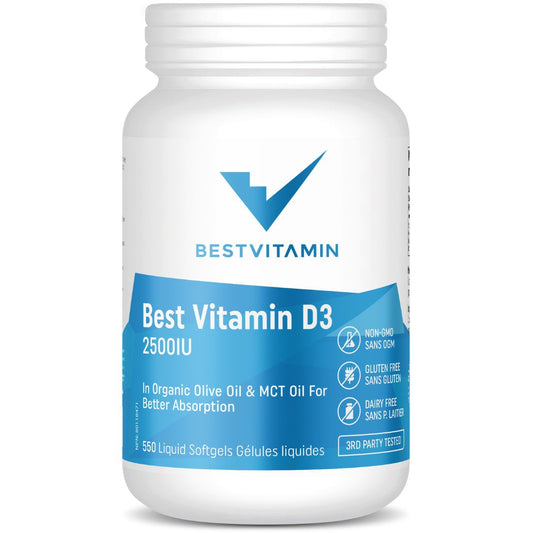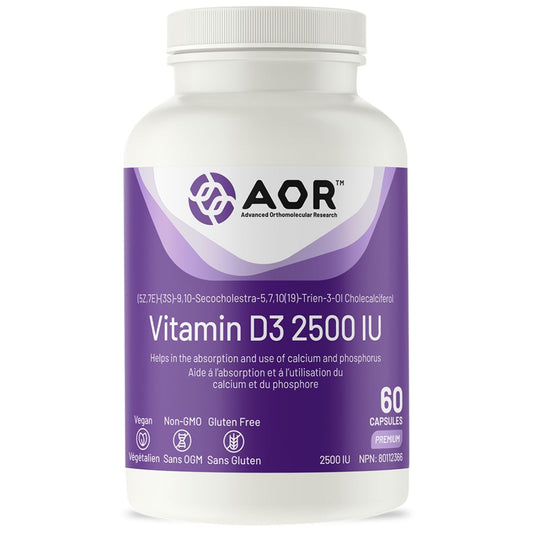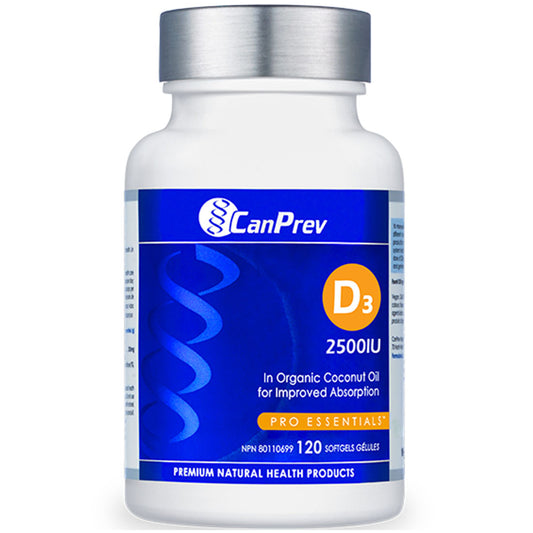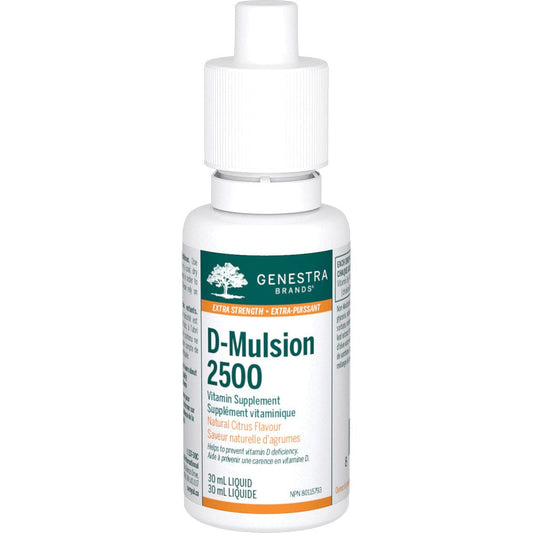4 Min Read
Best Vitamin D Supplements in Canada: A Comprehensive Guide

As Canadians grapple with limited sunlight exposure, particularly during the long winter months, the importance of vitamin D supplements becomes increasingly evident. Vitamin D, often referred to as the "sunshine vitamin," plays a crucial role in bone health, immune function, and overall well-being. In this guide, we delve into the nuances of vitamin D supplements in Canada, exploring their definition, types, dosages, benefits, drawbacks, efficacy, recommended intake, and signs of deficiency.
What are Vitamin D Supplements?
Vitamin D supplements are oral formulations containing either vitamin D2 (ergocalciferol) or vitamin D3 (cholecalciferol), two forms of vitamin D commonly used for supplementation. These supplements aim to provide individuals with a reliable source of vitamin D, especially when natural sunlight exposure is limited or inadequate.
Types of Vitamin D Supplements
Vitamin D3 Supplements
Vitamin D3, derived from animal sources like fish oil or lanolin, is considered the most bioavailable and effective form of vitamin D. It closely resembles the vitamin D synthesized by the skin in response to sunlight exposure.
Vitamin D2 Supplements
Vitamin D2, derived from plant sources like fungi or yeast, is less potent and bioavailable compared to vitamin D3. However, it is still used in some supplements and fortified foods.
Vitamin D Drops
Vitamin D drops offer a convenient liquid form of supplementation, often used for infants, young children, or individuals with difficulty swallowing pills. They typically contain vitamin D3 suspended in a carrier oil for enhanced absorption.
Different Dosages of Vitamin D in Canada
The recommended dosage of vitamin D varies depending on factors such as age, sex, and individual health status. In Canada, the following guidelines are commonly used:
- Infants (0-12 months): 400-1000 IU per day, ideally from vitamin D drops.
- Children (1-18 years): 600-1000 IU per day, depending on age and risk factors.
- Adults (19-70 years): 600-1000 IU per day, with higher doses recommended for individuals at increased risk of deficiency.
- Seniors (71 years and older): 800-2000 IU per day, particularly for those with limited sun exposure or reduced skin synthesis of vitamin D.
Benefits of Vitamin D Supplements
Bone Health
Vitamin D plays a crucial role in calcium absorption and bone mineralization, supporting skeletal health and reducing the risk of fractures and osteoporosis.
Immune Function
Vitamin D modulates immune response and enhances the body's defense mechanisms against infections, reducing the risk of respiratory illnesses, autoimmune diseases, and chronic conditions.
Mood Regulation
Adequate vitamin D levels are associated with improved mood and mental well-being, with deficiencies linked to depression, anxiety, and seasonal affective disorder (SAD).
Muscle Function
Vitamin D contributes to muscle strength, coordination, and balance, reducing the risk of falls and improving overall mobility, particularly in older adults.
Drawbacks of Vitamin D Supplements
Risk of Toxicity
While vitamin D toxicity is rare, excessive intake of vitamin D supplements can lead to hypercalcemia (elevated blood calcium levels), which can cause nausea, vomiting, weakness, and kidney damage. It's essential to follow recommended dosage guidelines and avoid megadoses of vitamin D.
Limited Sunlight Exposure
While supplements can help bridge the gap in vitamin D intake, they may not fully compensate for inadequate sunlight exposure, which is the primary source of vitamin D synthesis in the skin. It's important to strike a balance between sun safety and vitamin D synthesis.
How Long Does it Take Vitamin D Supplements to Work?
The time it takes for vitamin D supplements to work varies depending on factors such as dosage, baseline vitamin D levels, individual absorption, and overall health status. In general, it may take several weeks to months of consistent supplementation to achieve optimal vitamin D status and observe improvements in health outcomes.
How Much Vitamin D to Take
The appropriate dosage of vitamin D depends on factors such as age, sun exposure, dietary intake, and individual health status. It's recommended to consult with a healthcare professional to determine the most appropriate dosage for your specific needs and circumstances. Blood tests may be conducted to assess vitamin D levels and inform supplementation recommendations.
How to Tell if You Have a Vitamin D Deficiency
Signs and symptoms of vitamin D deficiency may include:
- Fatigue and weakness
- Bone pain or muscle aches
- Increased susceptibility to infections
- Mood disturbances or depression
- Impaired wound healing
- Bone loss or fractures
If you suspect you have a vitamin D deficiency, it's essential to consult with a healthcare professional for evaluation, diagnosis, and appropriate management. Blood tests can confirm vitamin D levels and guide supplementation or other interventions as needed.
In conclusion, vitamin D supplements play a crucial role in supporting overall health and well-being, particularly in regions like Canada with limited sunlight exposure. By understanding the types, dosages, benefits, drawbacks, and signs of deficiency associated with vitamin D supplementation, Canadians can make informed choices to optimize their vitamin D intake and promote optimal health throughout the year. As always, it's essential to consult with a healthcare professional for personalized recommendations tailored to individual needs and circumstances.








